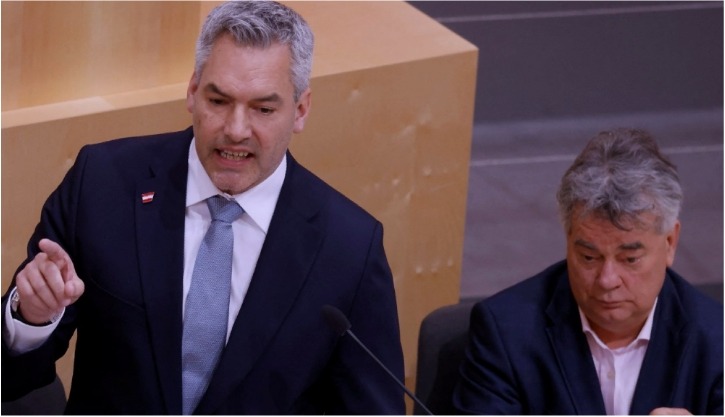
Austria’s Chancellor, Karl Nehammer, and Vice-Chancellor, Werner Kogler, have announced their intention to develop a new security strategy for the country. The current ten-year-old security doctrine requires updating, particularly in light of ongoing Russian aggression against Ukraine, according to experts. The new strategy will require approval from the parliament before the current legislative period ends.
Nehammer and Kogler emphasized the importance of neutrality in Austria’s security doctrine. Although it is less important within the European Union, it remains a vital aspect for Austria’s role as a mediator outside of Europe. The new strategy will need to address the more diverse and hybrid threat situation that has emerged in recent years. Economic resilience and energy transition are also expected to be reflected in the new doctrine, particularly in light of Austria’s experiences with Russia.
The current security strategy was approved by the National Council in 2013 and was based on a government bill. The new strategy will need to reflect the changing security landscape and emerging threats, and is expected to be more comprehensive and wide-ranging. The Austrian government hopes that the new security strategy will enhance the country’s security, independence and freedom, and contribute to regional and global peace and stability.
The announcement comes as Finland joins NATO, with the government assuring that neutrality will remain an essential part of the security doctrine in the future. Although neutrality is less important within the EU, it is a crucial aspect outside of Europe for Austria’s role as a mediator, according to Nehammer. Kogler added that it is essential to further develop neutrality so that Austria can make a positive contribution in good tradition.
The new security strategy will need to be approved by parliament before the current legislative period ends. The two politicians stressed that the new strategy will need to address the changing security landscape and diverse threats facing the country.
Economic resilience and energy transition are also expected to be key aspects of the new doctrine, particularly in light of Austria’s experiences with Russia. The Austrian government hopes that the new security strategy will enhance the country’s security, independence, and freedom, and contribute to regional and global peace and stability.
